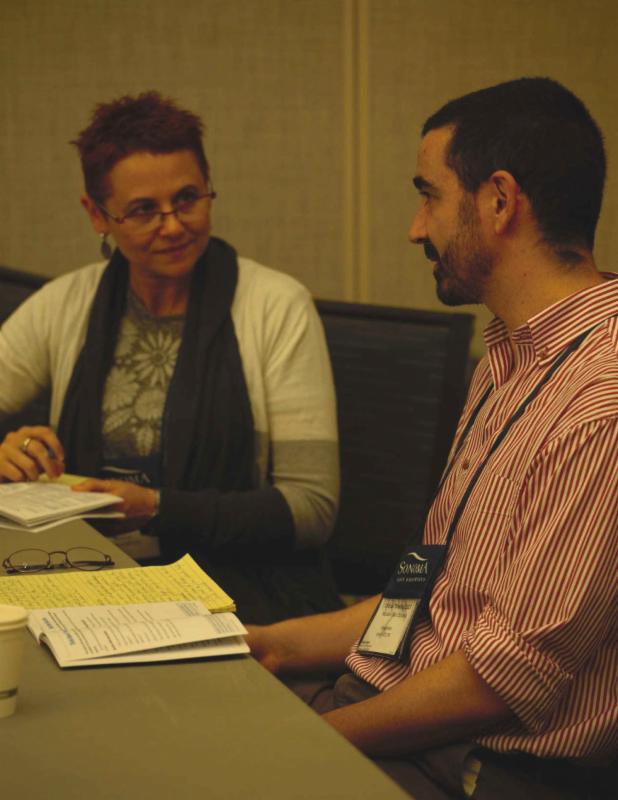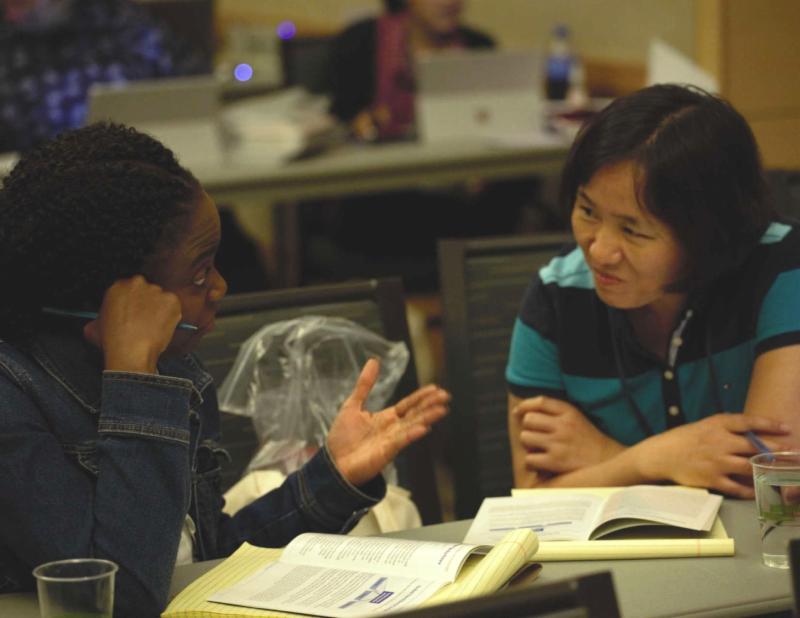March 15, 2018
Dear Colleagues and Friends of Critical Thinking:
We are reminded daily that there are many pressing problems facing humans. One of these is that technological advancement has given rise to the pedestrian belief that technology is the answer to all human ills. Technology seems now to be something akin to a holy grail we humans collectively worship, without entirely knowing why. For many, technology is treated as the whole, or nearly the whole, of human life. Digital reality has replaced actual reality, so that humans now frequently have difficulty differentiating the two. In the meantime, we are losing sense of family, of community, of connection to one another as human beings and sentient creatures. This can only lead us away from the principles embodied in fairminded critical societies.
| |  |
| Through improving our minds and freely exploring ideas together, we can meet the challenges facing our world.
|  |
At this point in history, technology is treated in much the same way as early science or math was treated by the majority of Greek intellectuals more than 2,400 years ago - as the most important subject to study for the advancement of human civilization. But neither math, nor science, nor any individual field or sub-specialty can be the whole of human thought or life. Each of these is merely a part of human experience. And it is clear that we do not always benefit from technological inventions and "improvements."
A rich conception of critical reasoning has seemingly little room in today's conversations; people are too buried in their cell phones (or other technology) to notice. The open exploration of ideas is not something most people feel comfortable with, because they have little experience with it.
It is for the advancement of human thought and understanding that we continue our work, and that we organize our annual world conference for our community. It is for you, your students, your colleagues, and your families that we go to these efforts, for all can be positively affected by your growth through critical thinking.
 | |
 | People from across the country and around the world come together each year at the Annual International Conference, learning to develop their reasoning abilities and then returning home to share their discoveries. |
Join with us in community at the 38th Annual International Conference on Critical Thinking. Register now to connect with individuals and delegations from around the world; here are just some of the places from which scholars are signed up to attend...
- Japan's Sophia University
- Ghana's Senior High School
- Canada's University of Saskatchewan
- Australia's Thinking in Organisations
- Zimbabwe's Midlands State University
- Institutions throughout the United States, including Endicott College in Massachusetts, Junipero Serra High School in California, Palm Beach State College in Florida, Clemson University in South Carolina, Mountain View College in Texas...
We expect people to attend from every major academic discipline and many specialties. Our earliest registrants represent a range of academic disciplines and professions, including Medicine, Business, Education, English, Fine Art, Philosophy, Theology, and Environmental Studies, to name a few.
I look forward, with all of our Visiting Scholars and Fellows, to working with each of you as we reach ever-higher levels of ability to foster critical thinking in our circles of influence.









